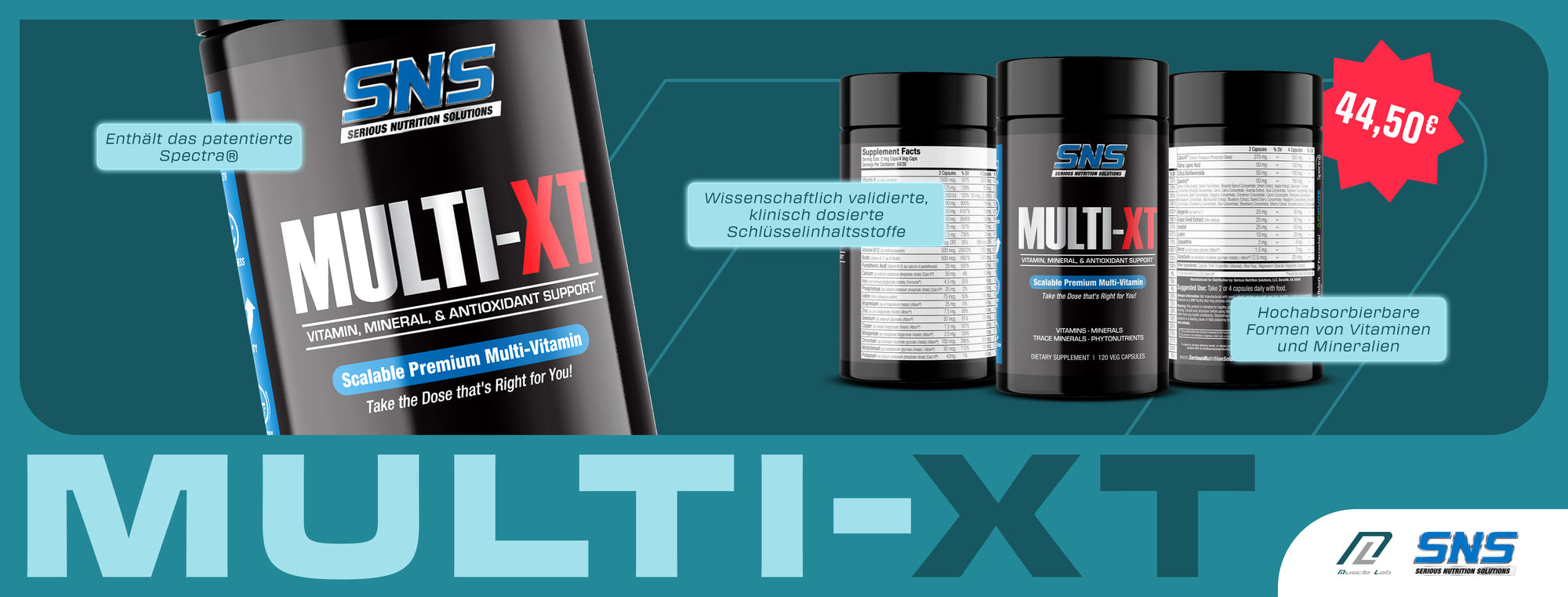Zinc - the mineral for daily intake
What is zinc?
Zinc is a very important mineral or trace element for our immune system and energy production. Zinc is involved in the production of thyroid and sex hormones and promotes regeneration, muscle building, and can even prevent hair loss.
Zinc can offer enormous added value as a supplement, as a zinc deficiency can have noticeable consequences—decreased performance, mood swings, low libido, and a weakened immune system. Along with iron, it is the most abundant trace element in our body and is involved in numerous functions.
Zinc effect
Zinc is such an important trace element that it's impossible to fully list its many benefits without writing an entire research paper. It's responsible for numerous bodily functions, helps combat inflammation, and strengthens the immune system. It's also an essential component in energy production and can significantly support muscle building.
Zinc is regularly used up by the body and is responsible for the action and function of over 300 enzymes. It supports wound healing and, with its anti-inflammatory effect, can counteract free radicals. Zinc is also important for cell division, growth, blood clotting, vision, taste, and smell.
Who is zinc recommended for?
- Zinc is especially recommended for athletes due to their increased requirements and should be dosed even higher than for non-athletes.
- In people with a zinc-poor diet such as vegans or vegetarians
- In case of acute illnesses, infections or susceptibility to disease
- For skin problems such as acne
- During pregnancy (optimized zinc supply recommended)
Zinc deficiency - what symptoms can occur?
A zinc deficiency can manifest itself in various ways and usually only over a long period of time. For example, a zinc deficiency can arise from a lack of food or a lack of proper nutrition. Depending on the zinc requirement, this can occur sooner or later. For people with a zinc deficiency, zinc tablets or capsules can help. The list of symptoms of a zinc deficiency is long, which we will briefly outline for you:
- fatigue
- Lack of motivation
- Poor wound healing
- Lack of concentration and mood swings
- Affected by infections more quickly
- Weight and appetite loss
- Rash and acne formation
- Disturbed metabolism
- Growth and developmental disorders in children
Foods with zinc - avoid zinc deficiency through a conscious diet
- Oysters (27.7mg per 100g)
- Emmental cheese (5.8mg per 100g)
- Peanuts (2.8mg per 100g)
- Oat flakes (3.6mg per 100g)
- Gouda cheese (4.3mg per 100g)
- Beef (5mg per 100g)
Zinc dosage - how many mg of zinc per day is useful?
Zinc dosage is highly individual and depends on age, lifestyle (diet), and many other factors. A sensible option is to take a zinc supplement. While the daily recommended zinc intake for infants is 1 mg, many supported bodybuilders take up to 150 mg of zinc daily (!). The following points are based on information from the German Nutrition Society (DGE) and describe the appropriate zinc intake at different ages.
- Infants up to 12 months: 1-2 mg per day
- Children between 1-10 years: 3-7 mg zinc daily
- Children aged 10-15 years: 7-10 mg zinc daily
- Adolescents and adults aged 15 years and over: 10 mg zinc daily
- Pregnant women from the 4th month: 10 mg zinc daily
- Breastfeeding women: 11 mg zinc daily
Who should take zinc supplements?
- sportsman
- People with zinc deficiency
- People with skin problems
- People with an acute infection or illness
- Vegans and vegetarians
- People with a weakened immune system
Buy cheap zinc products from Muscle Lab























